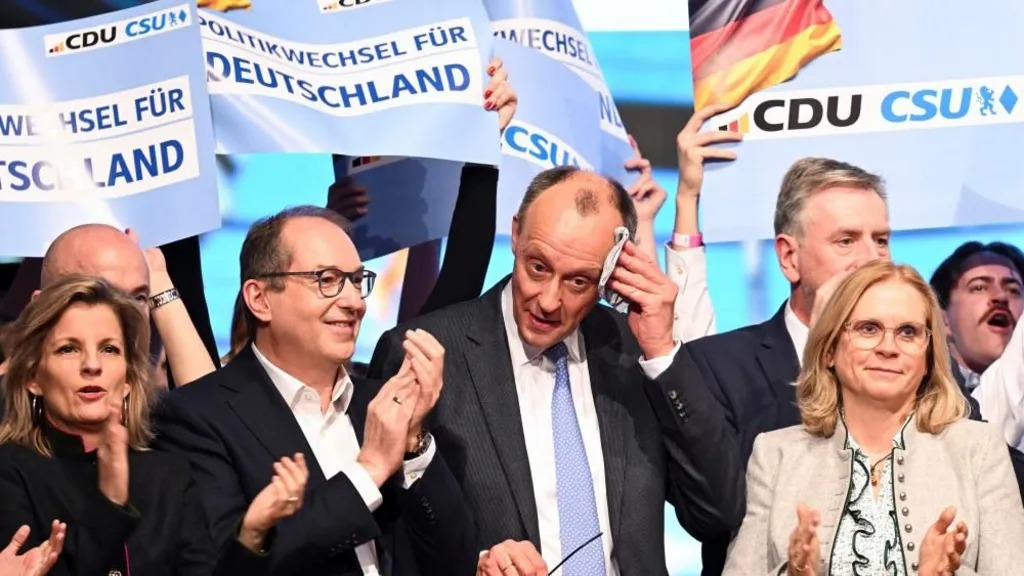
German Election 2025 Shapes Europe’s Future
On Sunday, February 23, 2025, the German election 2025 unfolds, a high-stakes vote watched by Europe and the US. After a fierce campaign, 59.2 million eligible Germans decide their next government amid a faltering economy and migration fears sparked by deadly attacks. Friedrich Merz, the 69-year-old Christian Democrats (CDU) leader, leads polls, promising to fix infrastructure and economic woes in four years. Polls open at 08:00 (07:00 GMT) and close at 18:00, with results expected by evening. Up to 20% of voters remain undecided, despite millions voting by post, energized by Saturday’s final TV debate—the ninth this month.
Merz, poised to replace Chancellor Olaf Scholz, whose coalition collapsed in 2024, vows no alliance with the far-right Alternative for Germany (AfD). Yet, the AfD, likely second behind CDU, surges with its anti-EU, pro-Russia stance and “remigration” push—deporting criminal migrants—fueled by five attacks since May, including a Berlin Holocaust memorial stabbing on February 21. Protests hit cities like Freiburg im Breisgau on Saturday, with 25,000 marching against the far-right, reflecting a fraying “firewall” taboo Merz briefly breached last month by accepting AfD parliamentary support.
German Election 2025: Migration and Security Dominate
Migration and security define the German election 2025. In western Marxloh, near Duisburg’s waning steelworks, young voters like Viktor back AfD, citing job scarcity and rising costs. “We’re young, we need work—they don’t give us a chance,” he said, shrugging off extremism labels. Prof. Conrad Ziller notes AfD’s urban west growth—20-30% in Duisburg’s north—mirrors its rural east strength, amplified by TikTok, where a Weidel video hit four million views. Her simple pitch: break the firewall, shift politics. Meanwhile, Merz eyes a CDU-Social Democrats (SPD) coalition, dodging AfD’s 20% polling surge past SPD’s 16%.
Global eyes fix on Berlin. Trump’s condemnation of Ukraine’s Zelensky and VP JD Vance’s AfD talks press Germany—Ukraine’s No. 2 arms supplier—to rethink military spending. For more, visit BBC or Kenkou Land.
Main Body: Economy, Allies, and a New Path
The German election 2025 tests a nation at a crossroads. Merz pledges strong EU leadership and economic revival—tough with two years of contraction and crumbling infrastructure. Trump’s fractured West adds urgency; Germany faces NATO spending hikes beyond its 2% GDP mark as the US pushes 5%. At home, attacks—like Magdeburg’s Christmas market deaths—thrust migration centerstage. AfD’s Weidel deflects economic woes to border control, a tactic Ziller says drowns out SPD’s 100-billion-euro fund or CDU’s tax cuts.
Coalition math looms. The 630-seat Bundestag needs a majority—CDU’s 30% lead may pair with SPD, but the Free Democrats (FDP) and BSW teeter at 5%, while The Left surges past Greens’ 14%. Fewer parties simplify deals; more muddy them. Today, February 22, 2025, at 7:39 PM PST, campaigning ends, protests flare, and voters—59.2 million strong—brace for a result by nightfall Sunday. Merz’s risk-taking past, flirting with AfD, shadows his promise of stability—will he deliver, or falter under global and domestic strain?





